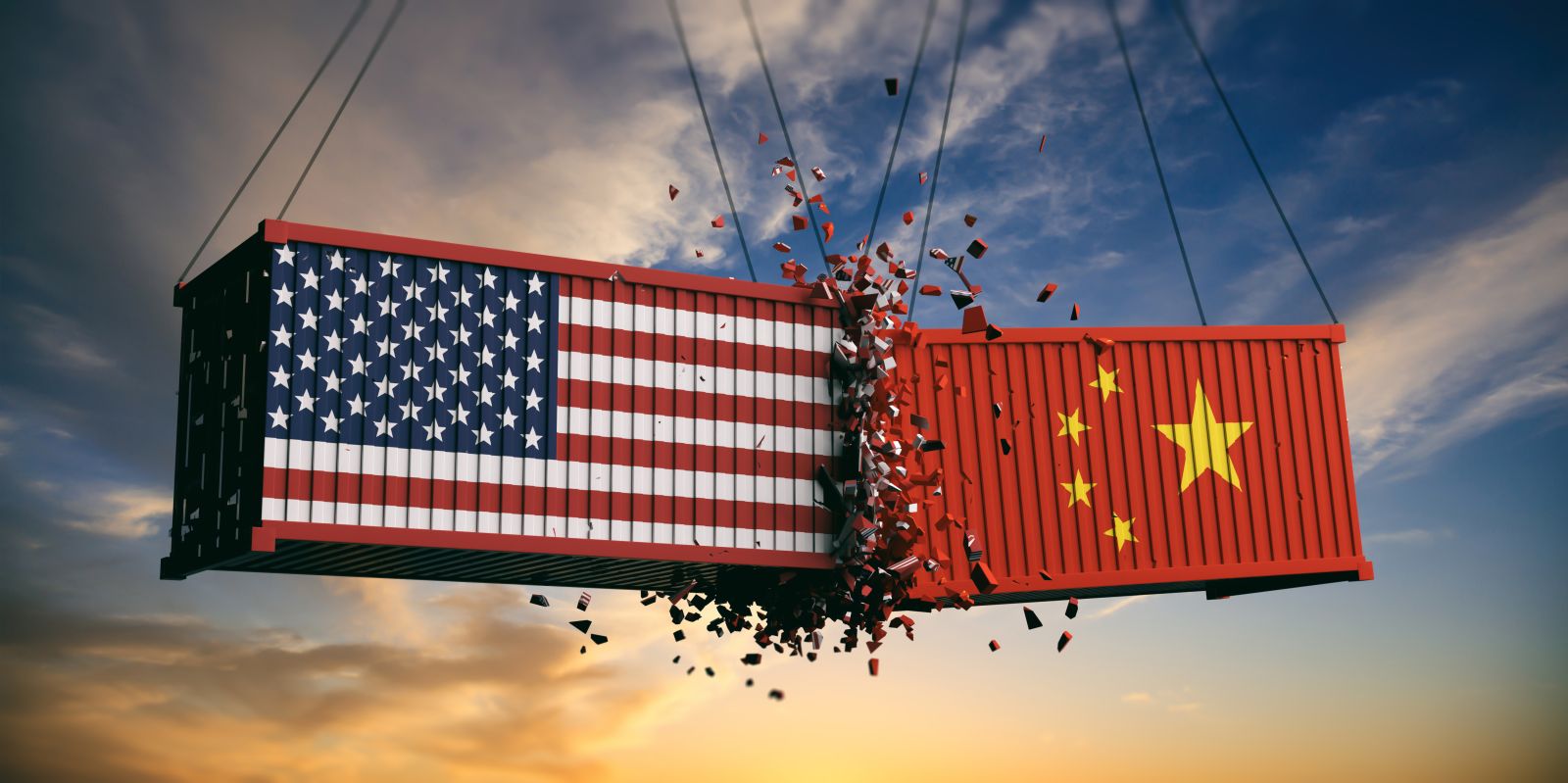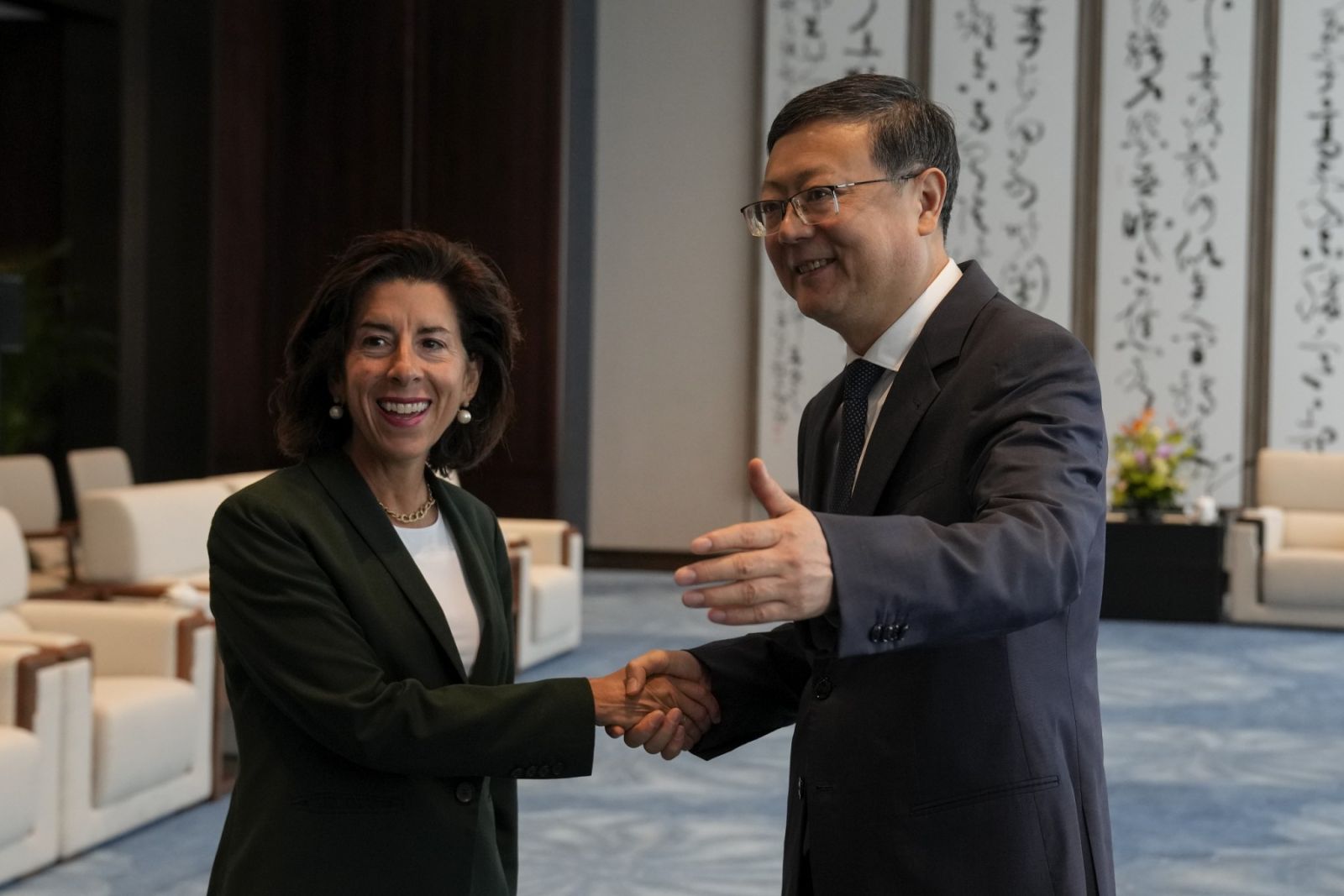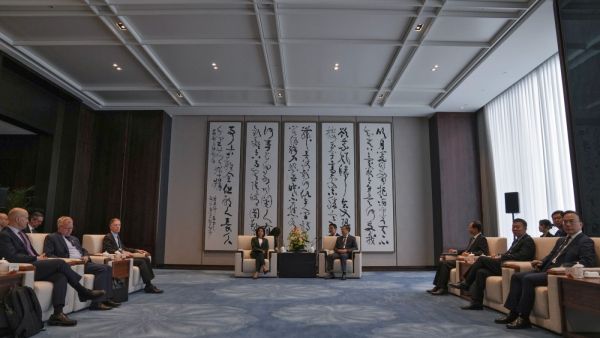ALBAWABA – On the last day of United States (US) Commerce Secretary Gina Raimondo to China, the senior official made it clear to Chinese counterparts Wednesday that restoring US-China ties could very well hinge on improving business environment predictability for US companies in China.
America is seeking a more predictable environment for US businesses in China, she said.
"Stable economic relationship is good for America, good for China and good for the world," Raimondo told officials in Shanghai, according to Agence France-Presse (AFP).
However, American businesses said China has become "uninvestible”, the secretary was reported as saying by Reuters, citing a trend of global investors turning away from assets in China.
In response to comments Raimondo made in China, the spokesperson for the Chinese embassy in Washington, Liu Pengyu told Reuters that most of the 70,000 US firms doing business in China wanted to stay.

A trade and tech war erupted between China and the US years ago and has taken its toll on US-China ties - Shutterstock
Nearly 90 percent of them were profitable and Beijing is working to further ease market access for foreign companies, Liu said.
"China is actively advancing its high-level opening-up and making efforts to provide a world-class, market-oriented business environment governed by a sound legal framework," he said. "China will only open its doors even wider to the outside world."
Speaking with Shanghai Communist Party chief Chen Jining on day four of a bridge-building trip to China, Raimondo said "The US-China economic relationship is among the most consequential in the world".
The secretary also said she is looking forward to further talks on bringing about “a more predictable business environment, predictable regulatory environment, and a level playing field for American businesses here in Shanghai".
Raimondo calls for more predictability and better communication to shore up US-China ties
US firms in China have long complained about limited protection for intellectual property and the preferential treatment afforded to domestic competitors, according to AFP.
A newly enacted anti-espionage law in China, which came into force on July 1, also added to the concerns of foreign and domestic firms, the France-based news agency explained. Companies are desperately trying to decipher authorities' intentions and, crucially, pinpoint what is off-limits.

Shanghai Party Secretary Chen Jining (R) gestures as he shakes hands with US Commerce Secretary Gina Raimondo before a meeting in Shanghai on August 30, 2023. (Photo by Andy Wong / POOL / AFP)
In a Tuesday meeting with Vice Premier He Lifeng in Beijing, Raimondo raised what Washington sees as unfair trade practices by China, according to a US Department of Commerce readout.
She also emphasised the "importance of strengthening the protection of trade secrets for US businesses operating in China".
Raimondo is the fourth senior US official to visit China in recent months – part of an effort by Washington to improve its working relationship with its largest strategic rival.
Raimondo has used the trip to seek more open discussions with the Chinese over restrictive trade curbs and the two sides have agreed to set up a working group to iron out the laundry list of trade disputes between them.









